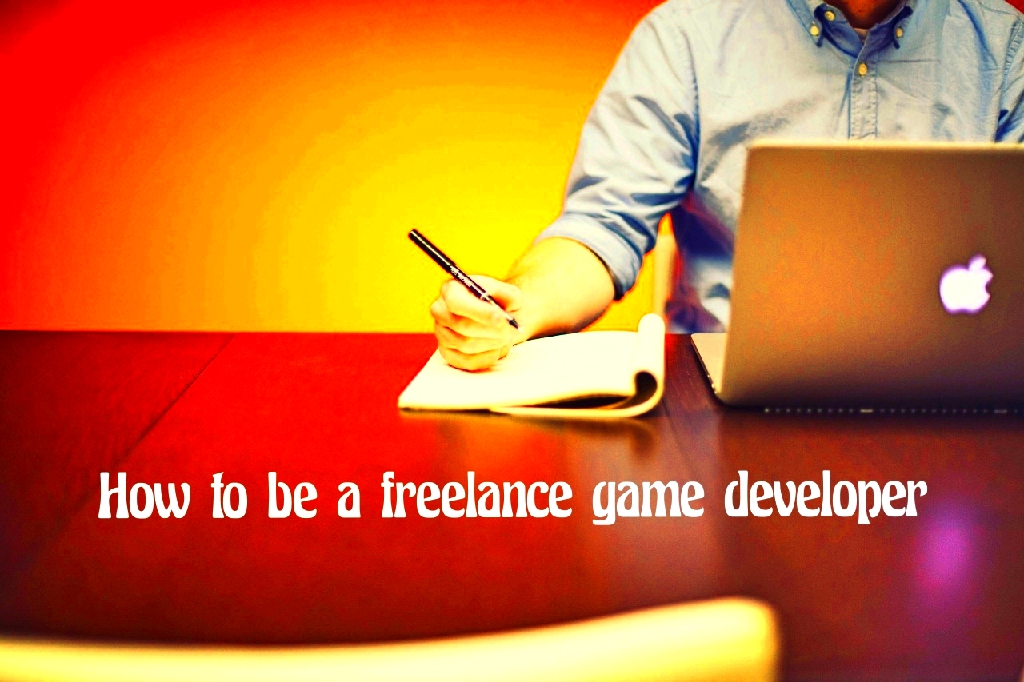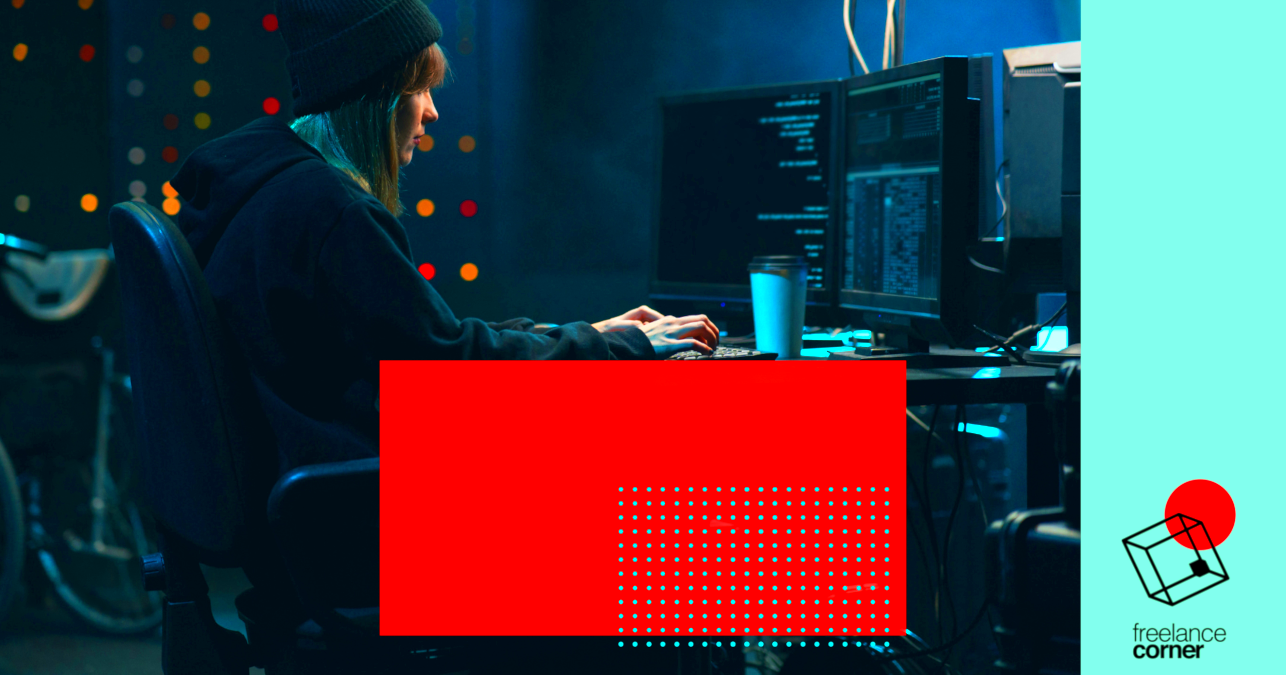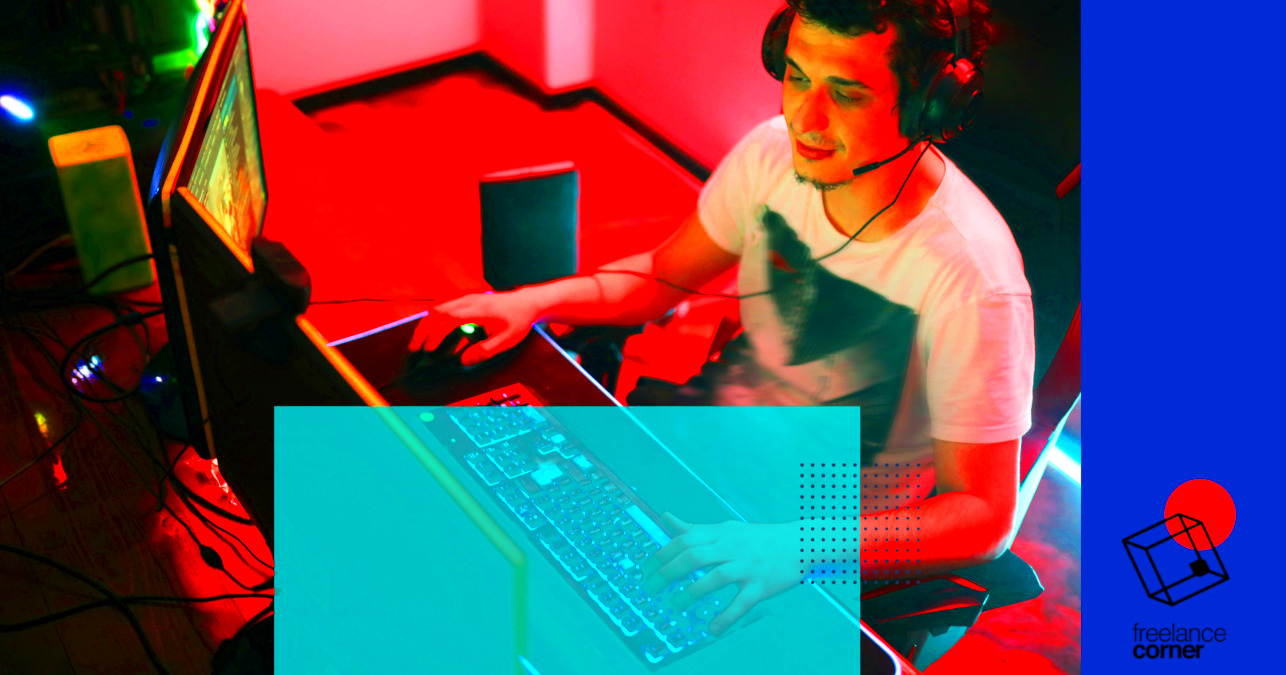Freelance game development offers an exciting opportunity for those passionate about creating games while enjoying the flexibility of working on their own terms. As a freelance game developer, you'll have the chance to work on various projects for clients around the world. You can choose to specialize in certain types of games or become a well-rounded developer, tackling different aspects of game creation. The beauty of freelance work is the ability to work from anywhere, set your schedule, and pick projects that match your skills and interests.
Skills Needed to Become a Freelance Game Developer

To succeed as a freelance game developer, you'll need to master several skills that go beyond coding. These skills help you develop high-quality games, communicate with clients, and manage your projects effectively. Here are the key skills you'll need:
- Programming Languages: Knowledge of programming languages like C++, C#, and Python is essential for game development. Unity (C#) and Unreal Engine (C++) are popular platforms that many game developers use.
- Game Engines: Familiarity with game engines such as Unity or Unreal Engine allows you to bring your game ideas to life. Understanding the tools within these engines is key.
- Problem-Solving: Game development often comes with complex challenges. Being able to troubleshoot and solve problems is crucial.
- Creativity: A strong sense of creativity helps in designing unique gameplay mechanics, characters, and environments.
- Project Management: As a freelancer, you’ll need to handle timelines, budgets, and client expectations. Effective time management and organization are important skills.
Developing these skills will give you the foundation to start building games that stand out in the competitive freelance game development industry.
Also Read This: Fiverr vs. Upwork: Which platform is better for freelancers?
How to Build Your Portfolio as a Freelance Game Developer

Building a strong portfolio is essential for attracting clients as a freelance game developer. Your portfolio serves as a showcase of your abilities, and it’s often the first thing potential clients will look at. Here’s how you can create a portfolio that highlights your best work:
- Start with Personal Projects: If you're just starting out, create your own small game projects. These can be demos or prototypes that demonstrate your skills in coding, design, and gameplay mechanics.
- Include a Variety of Work: Show your versatility by including different types of games (e.g., mobile, PC, VR). This helps potential clients see that you're capable of handling various types of projects.
- Showcase Your Process: Include breakdowns of how you created a particular game. This could include early sketches, design documents, and coding samples. It shows your problem-solving abilities and creativity.
- Get Client Testimonials: As you work with clients, ask for testimonials. Positive feedback from clients can help build trust with future clients.
- Use a Personal Website: Create a professional website to display your portfolio. This gives you a place to list your services, showcase your work, and make it easy for clients to contact you.
Remember, your portfolio is a living document that should be updated regularly as you complete new projects. A strong, diverse portfolio will make you more appealing to potential clients and help you stand out in the competitive world of freelance game development.
Also Read This: How to Apply for Unemployment Benefits as a Freelancer
Where to Find Freelance Game Development Jobs

Finding freelance game development jobs can be challenging at first, but there are several platforms and methods to help you connect with potential clients. Whether you're looking for full-time freelance work or just a few side projects, there are plenty of opportunities. Here are some places to start your search:
- Freelance Marketplaces: Websites like Fiverr, Upwork, and Freelancer.com offer a wide range of game development projects. You can create a profile, bid on jobs, and negotiate directly with clients.
- Game Development Forums: Communities like TigSource, GameDev.net, and Unity forums often have job boards or offer opportunities for freelance developers to collaborate with indie game studios.
- Networking: Attend game development conferences, both virtual and in-person, where you can meet other developers, studio owners, and potential clients. Networking is a powerful way to find work.
- Social Media & LinkedIn: Use platforms like Twitter, LinkedIn, and even Discord groups focused on game development. Many game studios and clients post job openings or look for freelancers through these channels.
- Job Boards for Game Developers: Websites like Gamasutra and Indeed have dedicated sections for freelance game development roles. These can be a great source for both short-term and long-term contracts.
By actively searching through these platforms and building relationships with other professionals in the industry, you'll increase your chances of landing the perfect freelance game development job.
Also Read This: How to Promote Your Fiverr Affiliate Link: A Comprehensive Guide
Setting Your Rates as a Freelance Game Developer

As a freelance game developer, one of the most important things you’ll need to figure out is how much to charge for your services. Setting your rates can be tricky, but there are some factors to consider to help you find a fair and competitive rate.
- Hourly vs. Project-Based Rates: You can choose to charge hourly or based on the project. Hourly rates are useful for smaller tasks or ongoing work, while project rates are better suited for well-defined projects with clear deliverables.
- Consider Your Experience: If you're just starting out, you may need to charge lower rates to build your portfolio. Experienced developers can charge more, especially if they have a proven track record.
- Industry Standards: Research the going rates for game developers in your niche. Websites like Glassdoor and Payscale can give you an idea of what others are earning. Rates can vary based on location, platform (mobile, PC, VR), and complexity of the work.
- Client Budget: It’s important to gauge what your client’s budget is. Sometimes, you may need to negotiate or adjust your rate depending on their needs and the project’s scope.
- Consider the Time Commitment: A more complex game or a large project will require more of your time, so factor that into your rate. Remember to include additional costs like software licenses or third-party assets in your price.
Setting the right rate helps you stay competitive while also ensuring you’re fairly compensated for your expertise. It’s also okay to adjust your rates over time as you gain experience and expand your portfolio.
Also Read This: How to Post Services on Fiverr
How to Manage Your Freelance Game Development Projects
Managing your freelance game development projects is a crucial part of your success. As a freelancer, you're responsible for everything from planning and development to communication with clients and meeting deadlines. Here are some key tips to help you manage your projects effectively:
- Set Clear Milestones and Deadlines: Break your project into smaller, manageable tasks and set clear milestones for each stage of development. This helps you stay on track and ensures you can measure progress.
- Use Project Management Tools: Tools like Trello, Asana, or Jira are great for organizing your tasks and tracking deadlines. They help keep you organized and ensure that nothing slips through the cracks.
- Communicate Regularly with Clients: Keep your clients updated on your progress. Regular communication helps build trust and allows clients to give feedback throughout the development process.
- Budget Your Time Wisely: Freelance work can be unpredictable. Allocate time each day to work on your projects and avoid overloading yourself with too many tasks at once. This helps reduce burnout and maintain high-quality work.
- Handle Payments Professionally: Set clear payment terms with your clients before starting a project. This could be an upfront deposit, a milestone-based payment structure, or full payment upon completion.
Good project management is key to delivering high-quality work on time and keeping clients satisfied. With the right tools and strategies, you’ll be able to manage your freelance game development projects more effectively, leading to a steady stream of work and satisfied clients.
Also Read This: The Complete Guide to Becoming a Freelancer on Fiverr
Common Challenges Freelance Game Developers Face
While being a freelance game developer can be rewarding, it’s not without its challenges. Freelancing offers flexibility, but it also comes with its own set of hurdles that can make it tough for newcomers. Understanding these challenges will help you be better prepared. Here are some common issues freelance game developers face:
- Unpredictable Income: Unlike a regular job, freelancing doesn’t offer a steady paycheck. Some months might be filled with projects, while others might be slower. It’s important to plan for dry spells and have a financial cushion.
- Managing Multiple Clients: As a freelancer, you’ll often have to juggle multiple projects and clients at once. This can get overwhelming if you're not organized. Good project management and time management skills are essential.
- Client Expectations: Not all clients have a clear understanding of the game development process. You may face unrealistic expectations or clients who constantly change their minds, leading to delays and frustration.
- Isolation: Freelancers often work alone, which can lead to feelings of isolation. Unlike working in a team, you might not have immediate support, which can make problem-solving more difficult at times.
- Staying Up-to-Date: The gaming industry moves quickly, with new technologies and tools emerging constantly. Freelancers must keep learning and updating their skills to stay competitive.
Despite these challenges, many game developers find freelancing to be a fulfilling career. With the right mindset, preparation, and tools, these challenges can be managed and turned into opportunities for growth.
Also Read This: How to Sell Quickly on Fiverr
FAQ
Here are some frequently asked questions by those considering a career in freelance game development:
- How long does it take to become a freelance game developer? It depends on your current skill level, but typically it can take a few years to build the experience and portfolio needed to attract consistent clients. However, starting with small personal projects can speed up the process.
- Can I freelance part-time as a game developer? Yes, many game developers start as part-time freelancers while still holding a regular job. This allows you to build experience and a portfolio without risking your primary source of income.
- What tools do I need to start freelancing as a game developer? You’ll need a computer with the necessary game development software like Unity or Unreal Engine, a good internet connection, and project management tools (like Trello or Asana). A website to showcase your portfolio is also highly recommended.
- Do I need to know everything about game development? No, it’s better to specialize in one area (e.g., coding, game design, or animation) and gradually expand your skills. Clients usually look for experts in a specific domain.
- How do I find clients as a freelance game developer? Freelance marketplaces, job boards, networking, and social media platforms like LinkedIn are great ways to connect with clients. Always update your portfolio and build relationships in the industry.
Conclusion: Starting Your Journey as a Freelance Game Developer
Becoming a freelance game developer can be a highly rewarding career choice for those passionate about gaming and development. While there are challenges along the way, the opportunity to work on diverse projects and the freedom to set your own schedule make freelancing appealing. As you begin this journey, remember that building a strong portfolio, networking with others in the industry, and constantly improving your skills will help you succeed.
Take the time to manage your finances carefully, set realistic goals, and establish clear communication with your clients. The path may be uncertain at times, but with persistence and dedication, you can thrive as a freelance game developer. Your journey will be full of learning, growth, and exciting opportunities to bring your game ideas to life.




